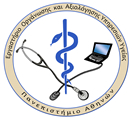Symptoms
Many people infected with chlamydia do not have any symptoms!
Some of the common symptoms include:
|
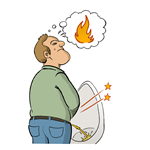 1. Pain during urination 1. Pain during urination
|
|
|
|
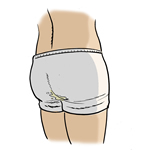 2. Discharge from the penis, the vagina or the anus 2. Discharge from the penis, the vagina or the anus
|
|
|
|
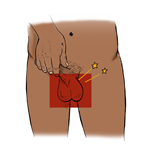 3. Pain in the testicles in men 3. Pain in the testicles in men
|
|
|
|
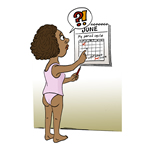 4. Bleeding between periods or after sexual intercourse in women 4. Bleeding between periods or after sexual intercourse in women
|
|
|
|
 5. Pain in the lower abdomen 5. Pain in the lower abdomen
|
|
|
|
 6. Heavier menstrual periods in women 6. Heavier menstrual periods in women
|
|
|
|
 7. Pain, discomfort, discharge or bleeding from the anus 7. Pain, discomfort, discharge or bleeding from the anus
|
|
|
|
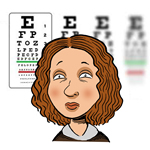 8. Eye pain, swelling, irritation and discharge 8. Eye pain, swelling, irritation and discharge
|
Transmission
Chlamydia infections are spread
-
Through infected semen or vaginal fluid
-
During unprotected (with no condom) sexual intercourse (vaginal, anal, oral)
-
From a mother to her baby
Even when the symptoms have gone away, the infected persons may pass the infection.
Treatment
Seek medical help for treating the disease. Chlamydia infections are easily treated with antibiotics. If left untreated, the infection may sometimes spread to other parts of the body and lead to severe long-term health problems in men and women, such as difficulty in having children. Avoid sexual contact until your treatment is complete as well as the testing/treatment of your partner.
Prevention
-
Avoid having sex or have a mutually committed monogamous relationship with a partner who has been tested and is infection-free.
-
Always use a condom properly in any kind of sexual intercourse (vaginal, anal, oral), from start to finish, with every sex partner.
-
Talk sincerely and openly with your partner about chlamydia infections and other sexually transmitted diseases.
When to seek medical advice
You should seek medical advice if:
-
You think you may have chlamydia infection
-
Your partner has chlamydia infection or has symptoms of a chlamydia infection
References
keelpno
nhs
cdc















